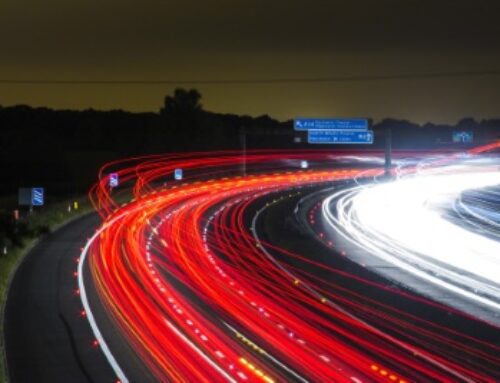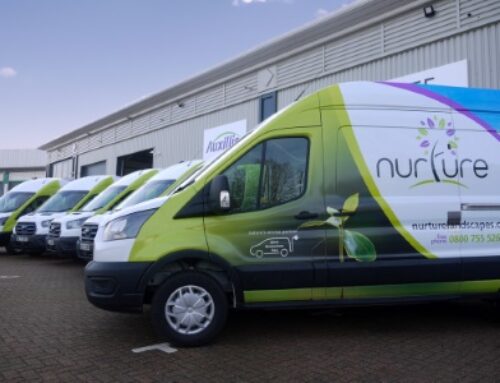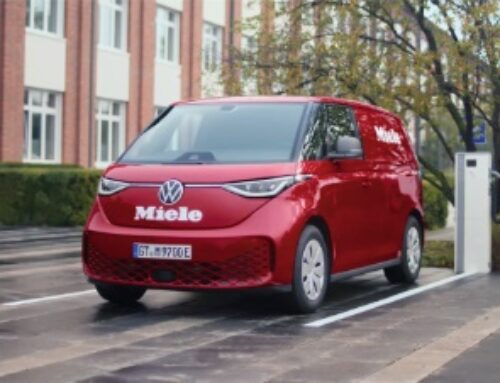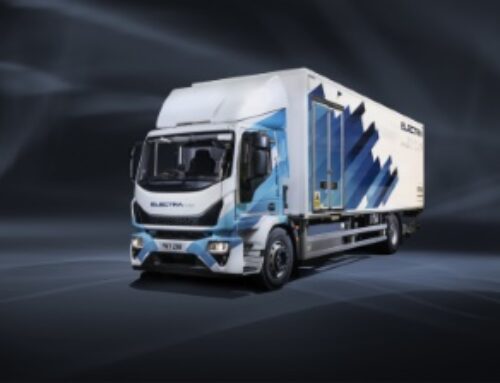TotalEnergies: how fleets can cut carbon and costs
 TotalEnergies UK has offered its perspective on how fleet managers can drive down their carbon footprints while also enjoying concurrent financial benefits.
TotalEnergies UK has offered its perspective on how fleet managers can drive down their carbon footprints while also enjoying concurrent financial benefits.
While road haulage is of critical importance as an industry for global and local supply chains and fulfilment, it is also one of the largest contributors to air pollution, the company observes – constituting one-fifth of the EU’s greenhouse gas emissions, and around a quarter of the UK’s total emissions.
For the UK to achieve net zero by 2050, road transport emissions will need to reduce significantly.
Tom Hyde, technical support manager, lubricants division at TotalEnergies UK, highlighted key factors fleet managers will be considering as they prepare for the energy transition – including which areas they should be investing in to drive carbon emissions reductions.
“Firstly, investment in advanced technologies such as aerodynamic enhancements, low rolling resistance tyres, and idle reduction systems can be a great asset, increasing vehicle efficiency and sustainability in the long run,” said Tom.
“Alongside this, regular maintenance of vehicles is crucial to ensuring peak operation – this means properly inflated tyres, clean air filters – and well-maintained engines.
“Fundamentally, the optimal approach to curbing carbon emissions involves transitioning fleets to modern, fuel-efficient, or even renewably powered vehicles that comply with the latest emission standards. Despite this, most operators will still be choosing diesel engines when they next renew their fleets – so optimisation and efficiency is key.”
With this in mind, investment into the best and most appropriate lubricants for engine maintenance is vital to the operation of fleets looking to become more sustainable, says Tom.
“Whilst lubricants have typically been seen as a something of an afterthought or technical detail, according to TotalEnergies’ findings, the right lubricants can deliver five per cent fuel or energy savings across heavy duty machinery and vehicles.
“Even small savings in fuel efficiency can really add up across a fleet, resulting in substantial time and cost savings for fleet managers and the industry as a whole.
“Lower maintenance costs and increased efficiency is possible through the right lubricant choice – by choosing products with reduced friction and viscosity (such as our own Rubia Optima 3500 FE 5W-30), engines can be kept in good working order, for longer.
“These efficiency gains provide both emissions reductions and cost control benefits equating to between two and three per cent increases in fuel efficiency for commercial vehicles.”
The same time and money that fleet managers put into choosing the right vehicle should be put into the right products to maintain these essential pieces of equipment, he contends.
“In this sense, TotalEnergies’ LubAnac oil diagnosis can also allow fleet managers to diagnose worn parts and lubricants, providing preventative maintenance and extending the life of equipment – which may also improve resale value.”
In terms of the day-to-day changes drivers can make, it’s imperative that fleet managers encourage and train them to adopt fuel-efficient driving techniques and habits which can help lower their overall environmental impact, adds Tom.
“This includes practices such as smooth acceleration and deceleration, maintaining a consistent speed, and avoiding unnecessary idling,” he continued.
“Moreover, leveraging technology in driving not only streamlines operations but also can help ensure compliance with regulatory requirements. For instance, employing telematics systems can provide real-time feedback to drivers, optimising fuel efficiency.
“Modern telematics systems provide real-time data on vehicle location, fuel consumption, and driver behaviour – invaluable data for making informed decisions and preventing unnecessary fuel expenditure.”
Regular driver training programmes can reinforce good practices, he says, contributing significantly to reducing fuel consumption and emissions.
“Engaged and well-trained drivers are less likely to be involved in accidents and more likely to operate vehicles efficiently.
“On a practical level, efficient route planning can help minimise fuel consumption and reduce emissions.
“Route optimisation software to plan the most fuel-efficient paths and combining shipments to maximise the payload of each journey, reducing the overall number of trips. Implementing balanced load management practices can contribute to overall fuel savings and improve the overall efficiency of your fleet.”
Organisations throughout the UK are establishing goals to meet net-zero greenhouse emissions by the UK’s target date of 2050, Tom points out.
“Mandatory disclosure of emissions is becoming a standard requirement for both UK and international businesses… and a growing number of entities are incorporating emissions measurement and disclosure into their Corporate Sustainability Reporting.
“Numerous UK enterprises are also actively participating in the Science Based Target Initiative, setting ambitious emissions reductions by 2030 and 2050.
“As the UK progresses towards its net zero target, grappling with reporting requirements and adapting to change will be paramount. Some ‘first mover’ logistics and freight operators, such as Stobart, have already taken steps to introduce SBTi commitments – and the industry will undoubtedly follow.”
Looking ahead, there will likely be financial penalties for companies that do not reduce their environmental impact and adapt, he adds – and potentially commercial implications if customers choose to partner with supply chain providers who align with their own emissions reduction goals.
“By progressively incorporating these practices and considerations into operations, HGV fleet managers can take substantial steps towards establishing systems that are both cost-effective and help bridge the gap between optimising the deployment of today’s fleets and a fuller transition to cleaner and more sustainable transportation,” Tom concluded.











